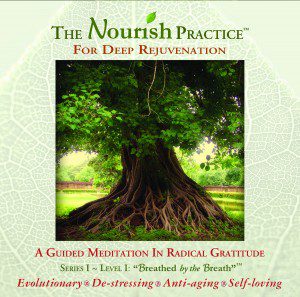18th January 2016
Contributing Writer for Wake Up World
Complexity and busyness characterize our times. Most of us don’t have enough time to do the things that matter most. If we don’t have a way to digest and simplify, we can easily feel overwhelmed and stressed out. Thus the great de-cluttering movement to simplify our lives.
Simplicity, therefore, should not be a dumbing-down of life’s complexities but an embrace of them. This way we arrive at a radical, comprehensive simplicity as the force of our presence and expression in the world.
Simplification, however, can backfire when it’s superficially engaged, by which we might do more harm than good. If you find yourself unable to find time for what matters most to you, I recommend cutting out the superfluous, unnecessary busy things you can do without. I bet you can name three of these things off the top of your head right now.
Sometimes we can fool ourselves into thinking we want a different life than what we have right now. We might think: I want to travel, do art, or meditate. But when we actually have time to do these things, we choose not to, for whatever reason. We might live a virtual, separate life in our imagination that theoretically seems better, but which we don’t actually engage.
It’s good to get realistic with ourselves, otherwise in trying to simplify our lives for what we think we want, we might be fooling ourselves. In other words, simplifying and opening up space in our life must be met by sincere interest and self-honesty, if we want real change. The danger in thinking we want something else is that we lose track of the hear and now, what is our life, and how to make our current situation better. This is why, for myself, I have always tried to better my current situation before thinking some other life is better, and tested the waters to make sure what I think I want is something I want and is really better.
For example, if I think want more time to travel and to meditate, I will make the time for a small trip and see how it really feels. If I think I need more time in the day to meditate, I will make that time by sacrificing something for that time, and see how it feels. If I think that life away from my current partner might better, Let me take a week off from engaging and test the waters. Often, we think something on the other side of the fence is greener as a way to escape working on and making our here and now better. Our defensive ego does anything to avoid digging into what requires facing our fears, challenges, and limiting beliefs. So, simplifying means being realistic; otherwise, we create confusion and unnecessary complexity by taking action that is not in synch with our true desire.
The Paradox of Complexity
Much of creating outward confusion and superfluous complexity derives from the chaotic state of our inner life. If we are disjointed inside it is difficult to make sense of what comes our way outwardly. We don’t know how to digest and process it. Many, therefore, recommend not thinking as much, not feeling as much, “keeping it simple,” and just trying to love and do good. However, if it were all this simple, the world would be a different place. All the lovely feelings do not bring simplicity or happiness if we are not also skillful in our integration of life’s challenges and our loving in action.
Simplicity, therefore, should not be a dumbing-down of life’s inherent complexities but an embrace of them. For example, taking the time to truth-check and sort through our desires to discover our deepest callings — which requires embracing the complexity of our competing desires — before making great changes, helps us align what we want with our actions. This way we arrive at a radical, comprehensive simplicity as the integrated force of our presence and expression in the world.
A linear, methodical approach to simplicity lacks the wisdom of paradox. What I propose therefore is radical simplicity. This means not dumbing ourselves down, not dumbing-down the gift that is our mind, our passionate hearts, our fathomless depths. Einstein said, “Make things as simple as possible, but not simpler.” This statement applies as well to the interface of inner and outer life as a caution both to not muddle and needlessly complicate, as well as not to diminish beauty by reducing anything to less than it truly is. We are complex beings by nature; just look at the structure of our brains, let alone interacting with other complex brains amid all the challenges of modern life. There is great beauty and fascination in our complexity
Radical simplicity, therefore, means embracing complexity, particularly the complexity of our inner lives. For, what we don’t embrace can’t be recruited as a resource for good. Wholeness assumes that all aspects of us are somehow worthy, somehow useful, even if they seem to give us trouble. Reality is not the contrived simplicity of our ego or fantasies. Death, heartbreak, ruin, illness, and environmental catastrophe are al real and not so simple in their experience. Yet, we can distill a sense of simplicity from them by embracing them and allowing all they have to change in us. Radical simplicity, then, is both trimming down our lives as well as allowing life to show us what is next, what is passionately wanting our attention.
Radical simplicity means discovering the goodness in what seems bad, as the enactment of paradox. It means engaging the inner work to arrive at an integration of mind, body, emotion, and aided by the ineffable bestowments of grace. This integration births a soulful life, one which functions efficiently and harmoniously precisely because the seemingly antagonistic aspects of us have found a home in one another. Perhaps the greatest challenge we face internally is how to deal with all manner of pain and difficult emotions. Simplicity is not to abdicate these challenges, but embrace them. Ironically, when we ignore our inner complexity, we live superficially and often create unnecessary pain and suffering.
Therefore, we want to embrace our complexity, and from this we can arrive at a form of simplicity that is not numbing and diminishing but inspiring and invigorating, passionate and meaningful, essential and healing. This attitude welcomes all experience without depriving us of anything, except what would detract from our hard-won brilliance—so our integrated humanness become simple, but not simpler. This is the paradox, the Yin and Yang, of complexity for simplicity.
Outside = Inside = Outside
To effect the distillation of inner simplicity, one other aspect to the equation is crucially helpful: simplifying our outer lives. We do this to make time for inner work. This doesn’t mean retreating from the world, per se. Rather, it means trimming off the fat of what is unnecessary. It might mean going out less, focusing on one hobby at a time, letting go of some distractions that don’t hold enough meaning, making friends with our own aloneness, exercising more, or finding more meaningful work and connections.
We do less so that we can feel more, live more, and dedicate more of our time and energy to what matters most. Cutting down our monetary overhead also is helpful, if not ecologically sane. This might mean moving to reduce rent, moving closer to work, decreasing extravagant purchases, and generally being more thrifty in ways that grant us more internal freedom. This also means that we have more time and energy to for actions in the world that affect us all. In short, we cut out needless busyness to live a richer inner life and engage in the inner healing that leads to both inner and outer power and passion. This reduces our need to take so much, to consume, to perpetuate the rat race.
Simplifying outwardly gives us more time to sort out our insides, the source of needless and painful complexity. Eventually our outward lives will come to reflect and be a channel for the integration and beauty we derive from inner emotional transformation. In turn, our pursuits and work, complex challenges and disappointments, will feed our inner richness instead of detract from it, so our lives can become more congruent, poignant, compassionate, and intentional.
This moves us from (“>” means “leads to/causes”):
Fractured inner life > cluttered outer life > broken inner life causing > increased outer clutter and confusion.
to:
De-cluttered outer life > more integrated inner life > focused and channeled outer life > richer inner life.
When we engage in this dynamic healing process, we begin to infuse the world with our healing and integrity. And this is what our world needs in these times of great imbalance, ecological urgency, and civil unrest. This is to become a sustainable person — living off the fat of inner richness, friendship, healthy loving, and an enjoyment of the natural world, so we can cut down on outer consumption.
Simple enough? Please share your thoughts below.
The Nourish Practice
Jack Adam Weber’s “The Nourish Practice” is an easy, guided meditation-Qi Gong practice in radical gratitude and self-love. It is an Earth-based, body-centered practice — at once physiological and mythological — that is deeply relaxing and replenishing, especially for modern-day burn-out syndrome, and requires little physical effort. The Nourish Practice “resets your nervous system” and fosters a rich inner life.
You can purchase The Nourish Practice as a CD or Digital Download here.
Previous articles by Jack Adam Weber:
- The Modern Shaman: Fierce Love at the Frontier of Madness
- Arrogance in Relationships: How to Deal With and Heal It
- 11 Reasons Why Hippies (Not Psychos) Should Rule the World
- The Monsanto Years: Singer Neil Young Rips Into GMOs, Big Biz and Conformity
- ReVOLUTION: When Enough is Enough
- Sex – Truth and Dare, Pleasure and Purpose
- Relationships: The Costs of Staying When We Should Leave
- Emotional Work
- Yin Yang — Ancient Wisdom for Personal and Planetary Transformation
- Heartbreak – Loving Ourselves Through Difficult Times
About the author:
 Jack Adam Weber, L.Ac. is a Chinese medicine physician, author, celebrated poet, organic farmer, and activist for body-centered spirituality. He is also the creator of The Nourish Practice, an Earth-based rejuvenation meditation. Weber is available by phone for medical consultations and life-coaching.
Jack Adam Weber, L.Ac. is a Chinese medicine physician, author, celebrated poet, organic farmer, and activist for body-centered spirituality. He is also the creator of The Nourish Practice, an Earth-based rejuvenation meditation. Weber is available by phone for medical consultations and life-coaching.
You can connect with Jack Adam Weber at:
- Facebook: Facebook.com/JackAdamWeber
- Twitter: Twitter.com/JackAdamWeber
- Email: [email protected]
Source Article from http://wakeup-world.com/2016/01/16/radical-simplicity-making-space-to-thrive/
Related posts:
Views: 0
 RSS Feed
RSS Feed

















 January 15th, 2016
January 15th, 2016  Awake Goy
Awake Goy 

 Posted in
Posted in  Tags:
Tags: 
















